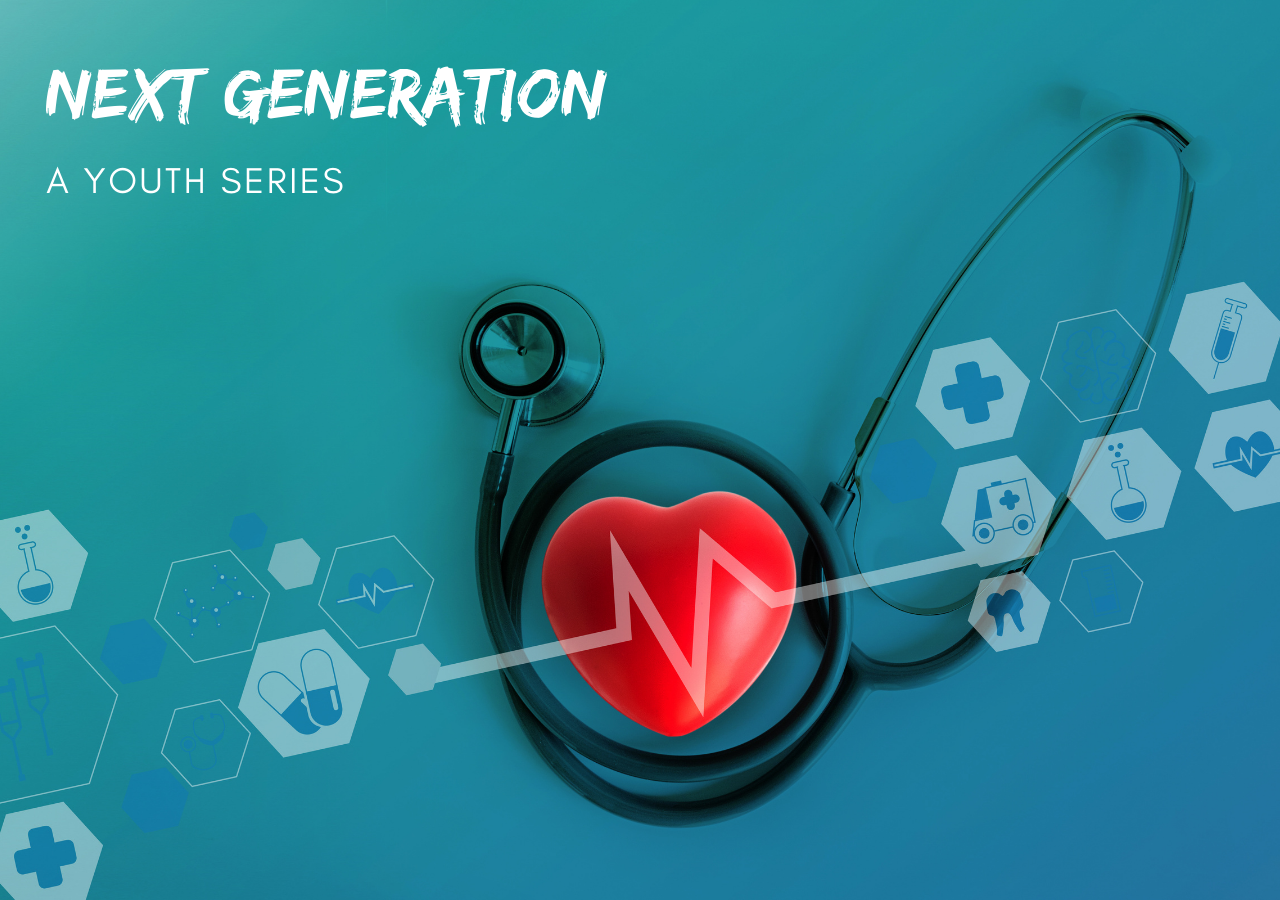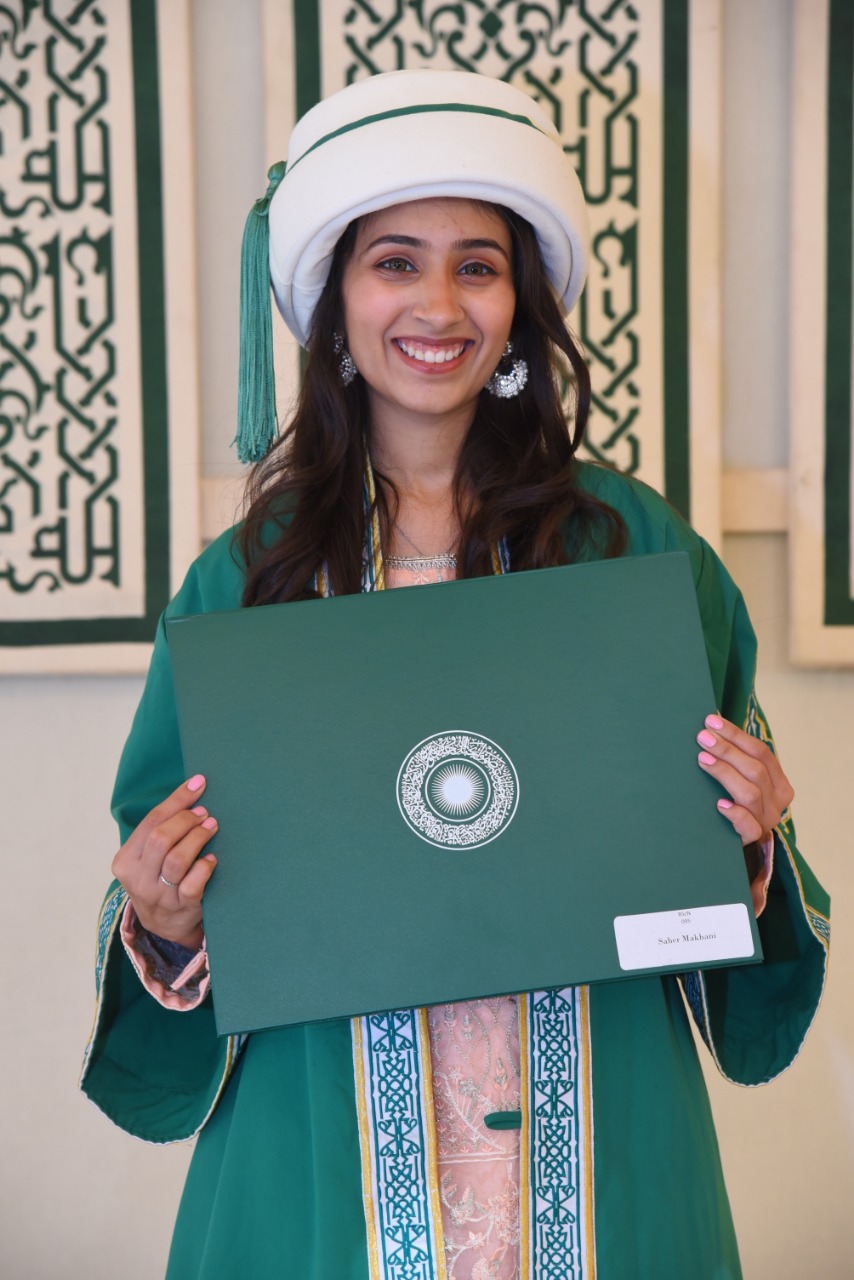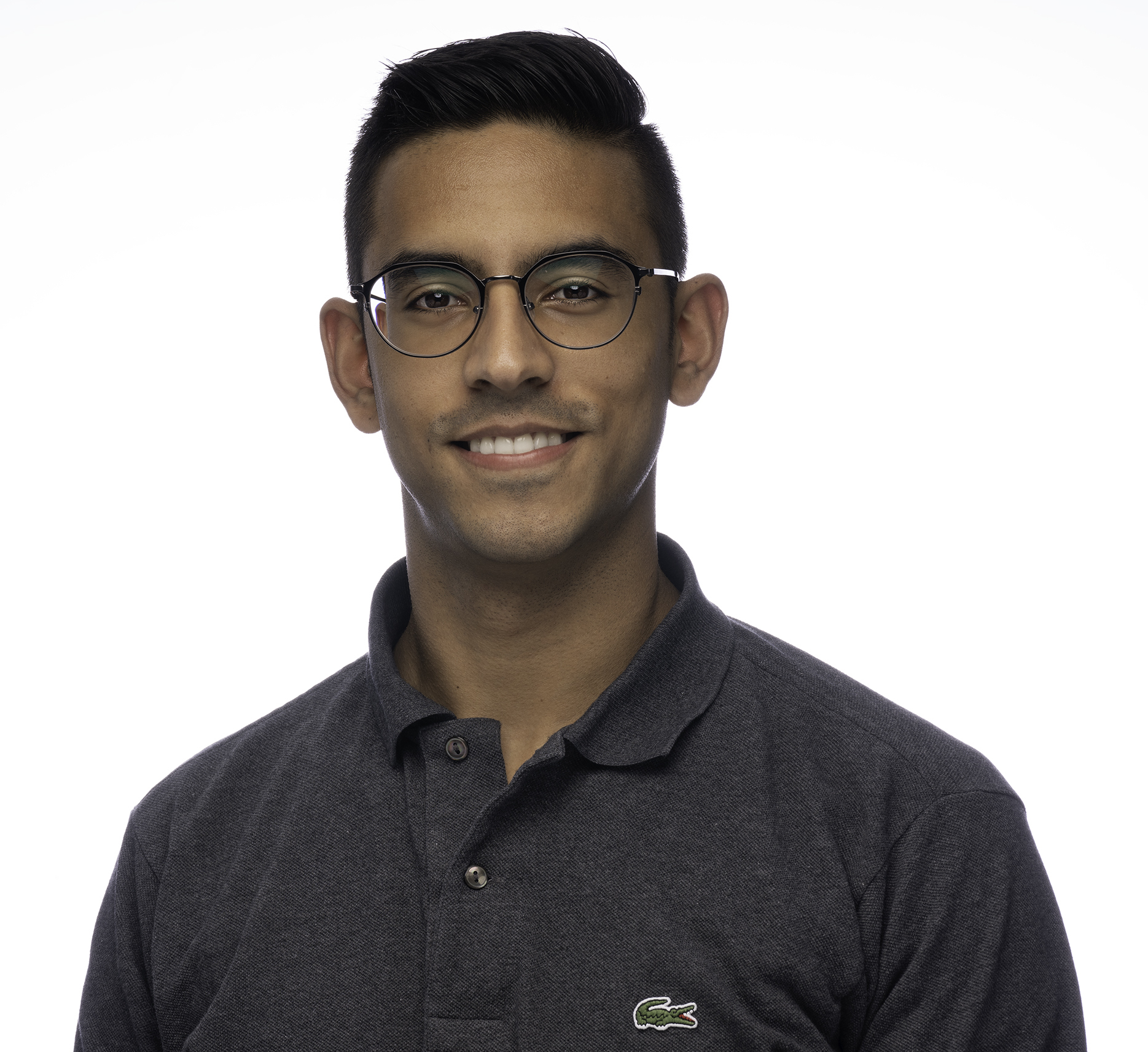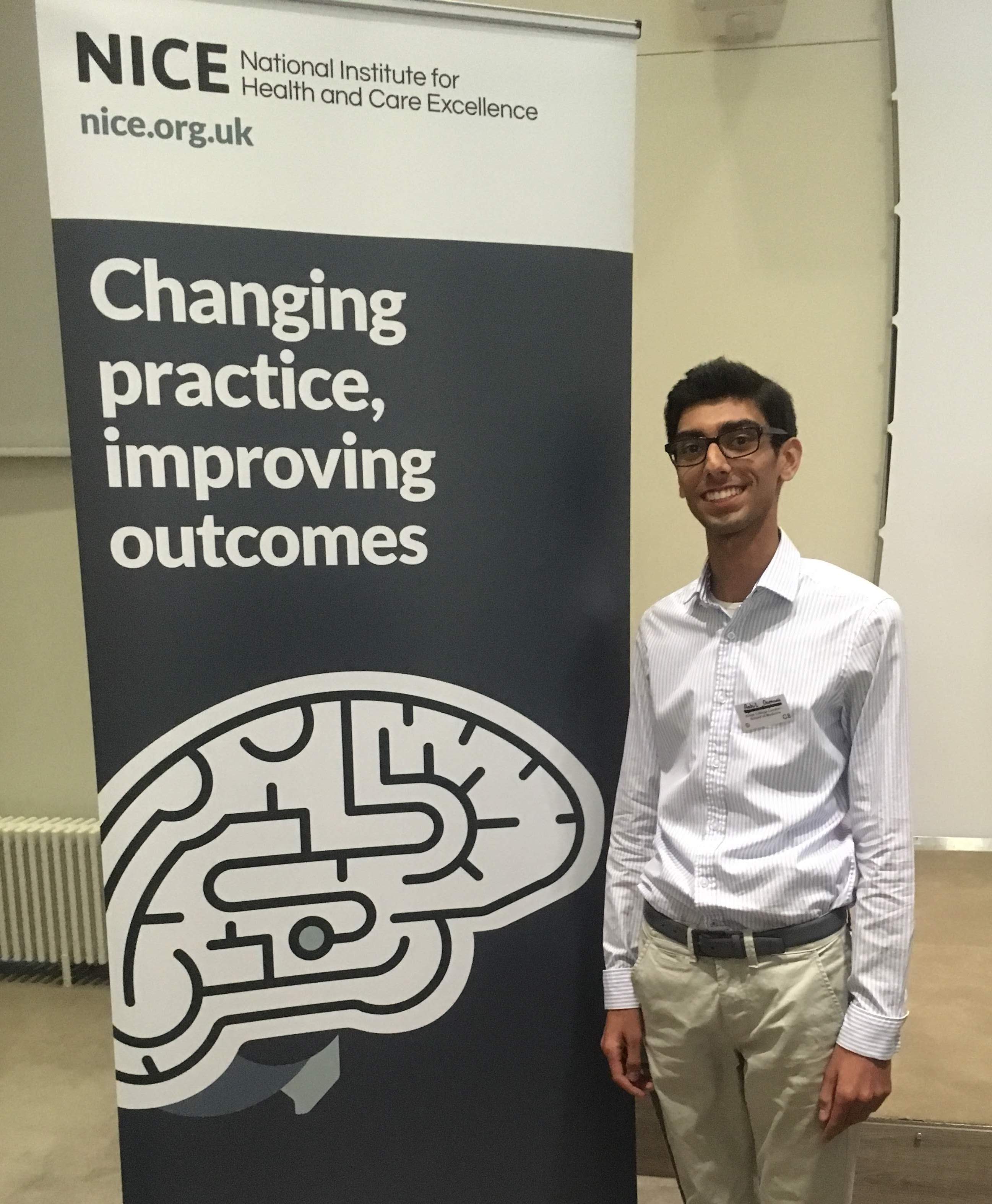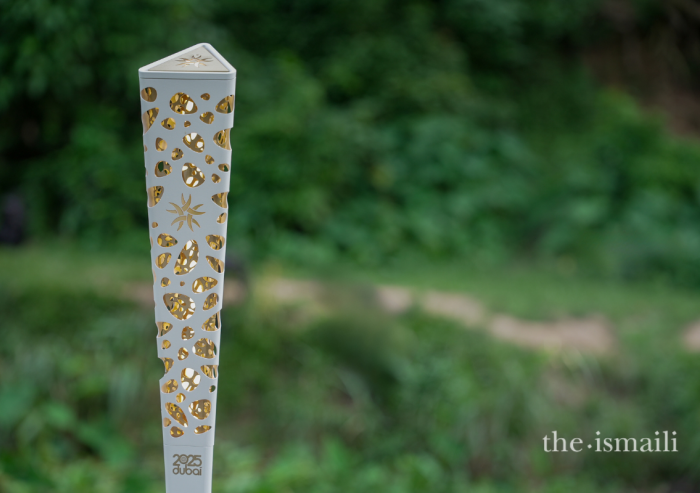Leveraging technology in nursing
Growing up in Karachi, Pakistan, Saher Makhani watched in admiration as her mother, a nurse, cared for the sick in her neighbourhood with compassion and kindness. Over the next several years, inspired by her family members in the healthcare field, Saher developed a strong passion for nursing.
For Saher, the decision to become a nurse felt natural.
“It’s a good profession, which is about caring for people. It’s something that’s in my nature, that I could connect to,” she said. Saher, 23, now works as a registered nurse in the cardiopulmonary department at the Aga Khan University (AKU) hospital.
After finishing high school, Saher pursued a Bachelor of Science degree in Nursing at AKU. It was there that she first discovered the innovative side to healthcare, which she quickly became passionate about.
In her third year of studies, after delivering an impressive pitch to her faculty for a mobile app that would increase mental health resources and personnel in nursing, Saher was selected as one of two students to represent AKU at the 2019 Massachusetts Institute of Technology Hacking Medicine Grand Hackathon. As a participant at the event, one of the largest health hackathons in the world, Saher worked with a team to build a technological solution to complex health problems.
Since then, Saher has worked to address various nursing challenges in innovative ways. Having witnessed the heavy language barriers that often hindered patients from rural areas in receiving adequate healthcare in urban hospitals, Saher, together with a few nursing and medical students, launched the Multilingual Health Project. The students developed a mobile app that translates the dialogue between patients and doctors, using human translators to account for differences in regional and spoken languages.
Although having only recently discovered her passion for creative problem-solving approaches in healthcare, Saher’s innovation journey is far from over.
“It’s something that I’ve always wanted to do. I wanted to do something different, something new, change this [conventional] perception of the field,” she said.
Saher looks forward to working with new technologies in the face of ever-changing challenges to providing quality healthcare. As she looks to the future of nursing in a rapidly changing world, Saher believes students and young professionals, equipped with advancements in technology, have a significant role to play in shaping the course of healthcare.
“Youth have an innovative mind, and fresh energy to work,” said Saher. “To bring a change, and portray how the [nursing] profession is valuable, it is important that youth are active.”
Making an impact across disciplines
Zia Saleh, 28, has always been interested in making a difference in others’ lives. Currently completing his residency in family medicine at the University of Alberta in Canada, it’s this passion for helping humanity that led him to medicine.
In 2010, Zia was selected among thousands of applicants nationwide to receive the Loran Award, a scholarship based on character, service, and leadership. While studying anatomy and cell biology as an undergraduate, Zia had the opportunity, through the scholarship, to work on public policy with the World Health Organization and practice management consulting with Deloitte, chalking up valuable experience outside the health sciences. Through this range of experiences, Zia realised that one discipline on its own could not make as deep an impact as multiple fields working together, and knew he wanted to continue to explore this diversity.
He did this by taking a year off from medical school to pursue a double Master’s in Public Policy and International Health and Tropical Medicine as a Rhodes Scholar at Oxford University. There, he continued to delve deeper into diverse subjects he was passionate about.
The interconnected nature between multiple areas of study is something Zia sees as essential to quality medical care. To him, clinical expertise coupled with a business background, or with project planning, only improves our ability to care for others.
“Healthcare isn’t just made up of doctors, nurses, and allied health workers. Being able to be at that table with knowledge of the different components involved allows you to tie things together in a meaningful way,” said Zia.
For students at the beginning of their professional journeys, Zia believes that it is important to be familiar with different perspectives and take time to expand your mind and your career options.
Across his multiple experiences, Zia describes his faith as a constant driving factor, instilling in him values of volunteerism, compassion, and empathy.
“The stones that pave [my] journey are the ethics of our faith and the belief in the ethic of service.”
As he finishes up his last few months as a family medicine resident, Zia looks forward to continuing to explore various disciplines, guided by his desire to help others in a holistic way.
“I don’t think being a family doctor is an endpoint for me. I think it’s just one step along that journey of trying to make my life impactful on other’s lives in a positive way.”
Studying pandemics
At age 15, Aahil Damani fell ill and was fortunate to have healthcare providers assist him in his recovery. Seeing the way in which the doctors and the healthcare team cared for him and helped get him better was inspirational for Aahil.
“I thought, I want to be able to do that for others as well,” said Aahil. “That was the main reason I got into medicine.”
Born and raised in the United Kingdom, Aahil, 22, is a medical student at King’s College London. After completing three years of his medical degree, he decided to take a year out of his programme to complete optional studies and explore a specialty of interest. For him, this felt like an important way to gain knowledge in a different setting.
“I knew it would be a great way to experience a new environment.”
Aahil chose to pursue a Master’s degree in Control of Infectious Diseases at the London School of Hygiene and Tropical Medicine, having enjoyed the public health courses he took in medical school. Although he values working in a clinical setting, he felt he wanted to make an impact on a larger scale. Studying epidemiology seemed the perfect way for him to do that.
“Public health is like a helicopter view — you can treat millions of people at once.”
He is currently finishing his year-long Master’s degree, at a time when education on public health is more relevant than perhaps ever before. As a student learning about infectious diseases such as Covid-19, he has been exposed to the complicated layers of pandemics and public health crises. During times of uncertainty and confusion, he has been able to reassure and inform his family and friends with his newfound knowledge.
“I’m a student who’s learning. While I don’t know the answers to a lot of things, what I can do is provide the basic knowledge, such as the importance of wearing a mask and keeping a distance.”

